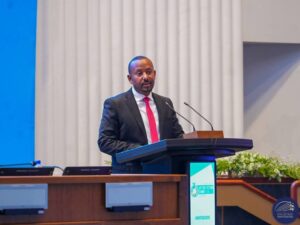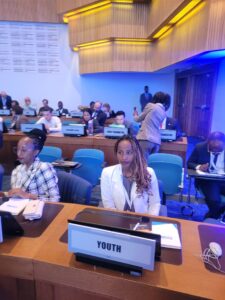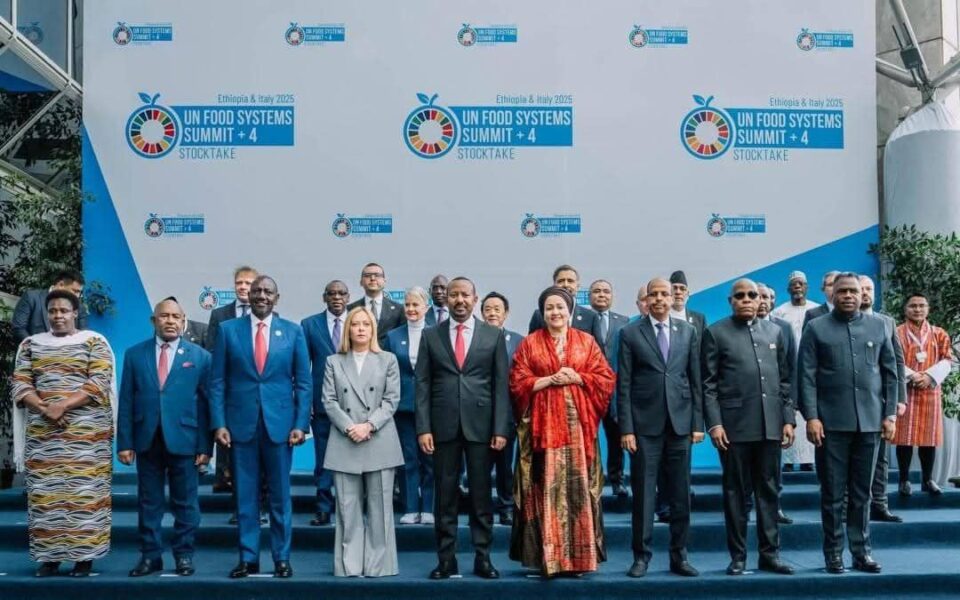

Second United Nations Food Systems Summit Stocktaking (UNFSS+4) concluded today in Addis Ababa, Ethiopia, reinforcing international resolve to build sustainable, inclusive, and resilient food systems. Co-hosted by the Governments of Ethiopia and Italy in collaboration with the United Nations, the summit ran from July 27 to 29, 2025, and brought together world leaders, UN officials, youth representatives, and other key stakeholders.
The summit opened in the presence of several high-level dignitaries, including the Prime Minister of the Federal Democratic Republic of Ethiopia, H.E. Abiy Ahmed Ali, Italian Prime Minister and President of the Council of Ministers, H.E. Giorgia Meloni, and UN Deputy Secretary-General, H.E. Amina J. Mohammed. They were joined by President of Kenya, H.E. William Samoei Ruto, Vice President of Nigeria, H.E. Kashim Shettima, President of Somalia, H.E. Hassan Sheikh Mohamud, Chairperson of the African Union Commission, H.E. Mahmoud Ali Youssouf, and Executive Secretary of the United Nations Economic Commission for Africa (ECA), Mr. Claver Gatete, alongside numerous African ministers and policymakers.
In a virtual address, United Nations Secretary-General António Guterres commended the collaborative spirit of Ethiopia and Italy in hosting the summit and highlighted the urgency of transforming food systems in the face of global crises. Guterres urged countries to adopt climate smart food policies, invest in resilient agricultural systems, and leverage technologies including artificial intelligence to reduce reliance on imports and increase food security. He emphasized that food systems are central to achieving the 17 Sustainable Development Goals (SDGs) and called for increased support for developing countries through debt relief and financial system reforms.

Prime Minister Abiy Ahmed outlined Ethiopia’s ambitious roadmap for food system transformation, aligned with the country’s broader macroeconomic reforms. “We have made a deliberate choice to act boldly, to think holistically, and to place human dignity at the center of our food systems,” he said.
The Prime Minister cited key initiatives including expanded irrigation-led wheat production that has enabled Ethiopia to curb imports, the “Bounty of the Basket” initiative promoting high-value livestock and aquaculture, and the Seqota Declaration, a multisectoral strategy to eliminate child undernutrition by 2030. Ethiopia’s Green Legacy Initiative, which has planted over 40 billion trees, was also highlighted as a climate resilience and food productivity booster.
The roadmap includes over 700 locally grounded interventions organized across seven strategic clusters from production and market access to innovation, energy, and skill development implemented through a whole-of-nation approach involving all levels of government, civil society, and the private sector.
Italian Prime Minister Giorgia Meloni emphasized that food insecurity is not only a humanitarian issue but a global security challenge intricately linked to conflict, forced migration, and political instability. She stressed the need for a coordinated international approach to food systems and used the summit as an opportunity to deepen Italy’s strategic engagement in the Horn of Africa.

Youth-Led Action for Food System Reform
A highlight of the summit was the launch of the UNFSS+4 Youth Declaration for Food Systems Transformation, the product of a global consultation process involving a lot of young people. The declaration calls for urgent action to accelerate food system reform and amplifies youth voices in shaping future food policy.
Emebet Asefa , Correspondent, Addis Ababa




